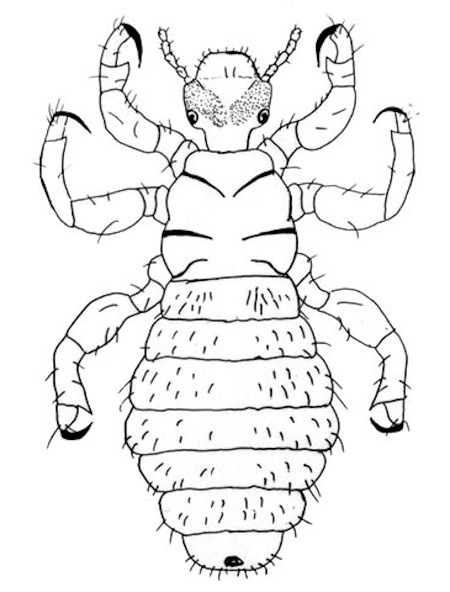
The Polish
Typhoid Mary

The rural branches of the Underground displayed a special brand of ferocity and ingenuity all their own. Indeed, in our desperation and outrage against the barbaric methods of the Germans we used devices of which we were almost ashamed, but which we developed as purely rational answers to the appalling German process of exterminating our citizenry. In several cases, for instance, we employed procurers to arrange encounters between German officers and prostitutes whom we knew to have venereal infections. We allowed a great number of criminals to be liberated from penitentiaries in 1939 and encouraged them to resume their former professions of thieving and murdering, with the proviso that they confine their activities to the Germans. Our authorities kept the names, records, and data of every one of them, in order to be able to regain control of them after the war. Of course, they were promised that their sentences would be reduced in proportion to the success of their operations against the Germans.It is a significant sign of the intensity of the collective hatred against the Germans that not one of these criminals committed a single act against a Pole and that many of them could be trusted to perform one or two of the more bloody requirements of Underground action.
The people who did not live under German domination will never be able to gauge the strength of this hatred and will find it difficult to understand that every moral law, convention, or restriction on impulses simply disappeared. Nothing remained but the desperation of an animal caught in a trap.
We fought back by every conceivable means in a naked struggle to survive against an enemy determined to destroy us. Poland snarled and clawed back at its oppressors like a wounded cat. I doubt if such a state has existed in large collectivities since the time of Christ.
We developed some real experts in revenge. I remember a man called Ian who came from the province of Poznan and spoke German fluently. Before the war he traded in pigs. During and after the invasion, the region from which he came endured the most atrocious sufferings under the domination of the Germans. In Warsaw, Ian became one of the many specialists in paying back the Germans with their own coin.
To spread contagious diseases was Ian's favorite activity. He carried on his person an astounding collection of every type of lethal agent. He had an attractive, specially constructed little box in which were housed lice that bore microbes, typhoid-bearing germs, and other diseases. I was so repelled at the notion that I forbore to gather more specific information. His methods, however, were well known among us.
He would frequent bars, enter into conversation with German soldiers, and drink with them. Drinking was one of Ian's pleasures but he never let it interfere with his main objective. At the appropriate moment he would drop a louse bearing typhoid germs behind the collar of his German friend. He would drop germs into the drinks. He, too, would introduce them to girls who had venereal diseases. He was known to have a number of different methods that he would utilize according to his convenience or fancy. Not one of the Germans ever escaped lightly with whom the "walking germ," as he was known, became acquainted.
We had many proofs of the people's obedience and trust in us. A typical order that was issued to test the discipline and confidence of the Polish people was the one forbidding the reading of German newspapers printed in Polish. The Delegate knew that it would be impossible to forbid completely reading these papers. Curiosity and craving for news are too deep to overcome. The order was limited during some periods to Fridays. On that day, the Polish people were instructed to abstain from purchasing a single copy of Nazi newspapers.
We were soon able to see the results of this order. The Friday editions of the German newspapers had to be drastically curtailed. All over Poland --- in Warsaw, Cracow, Lwòw, and Wilno --- it became known that a person seen buying newspapers on Friday was liable to be hit by a brick as he left the stand. An invisible hand might place a card on his back on which was written: "This pig patronizes German trash." On his house the next day, as if by magic, an inscription might appear in indelible paint, "A fool lives here. A stupid, vile Pole who obeys the German gangsters instead of his own leaders."
Another simple and clever device to unite and hearten the Polish people and draw them close to the Underground was the order to rename the streets. This order was issued by the Political Representation. It was somewhat romantic and sentimental in spirit, but it proved invaluable in a practical way. Overnight, on the walls, on street corners and lamp posts, inscriptions and placards appeared bearing new names, the names of heroes or statesmen of this war whom the Poles admired: Niedzialkowski Avenue, Rataj Drive, Roosevelt Street, Churchill Boulevard. To use the prewar name or the name the occupants had assigned became an unforgivable crime in patriot company. When one was with strangers, one could immediately tell which side they were on. If they said "Roosevelt Street," one knew that, unless they were provocateurs, one was among one's own kind. If they said "Debowa Street," then one had to watch one's tongue. In this way most of the streets in Poland were renamed and the names were accepted by the vast majority of the people.
I saw ample testimony to the success with which the Underground maintained the Polish people in a "rigid attitude" toward the enemy. Frequently I had to draw up reports and circulate them among the leaders on the effects of our instructions.
--- From Story of a Secret State
Jan Karski
©2013 Georgetown University Press